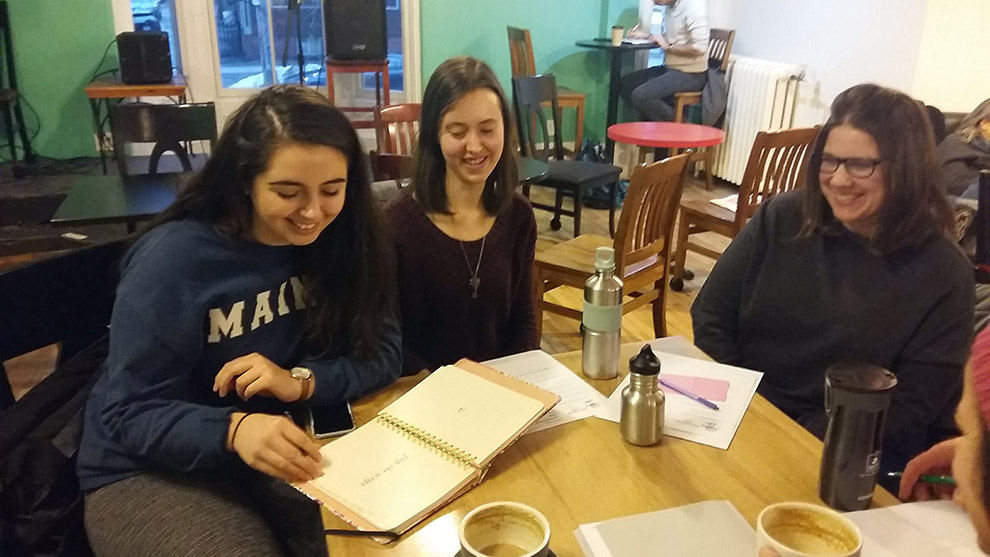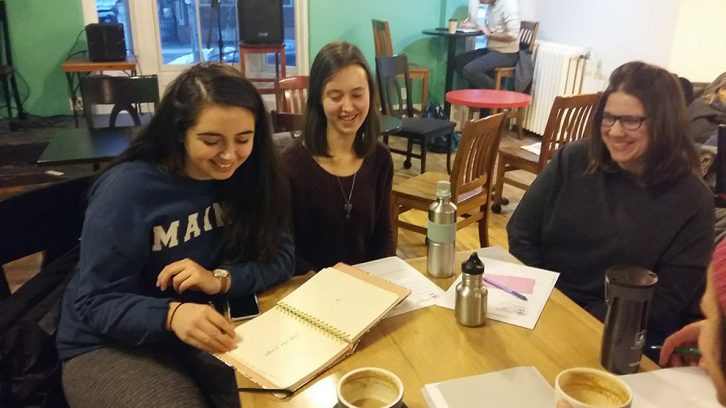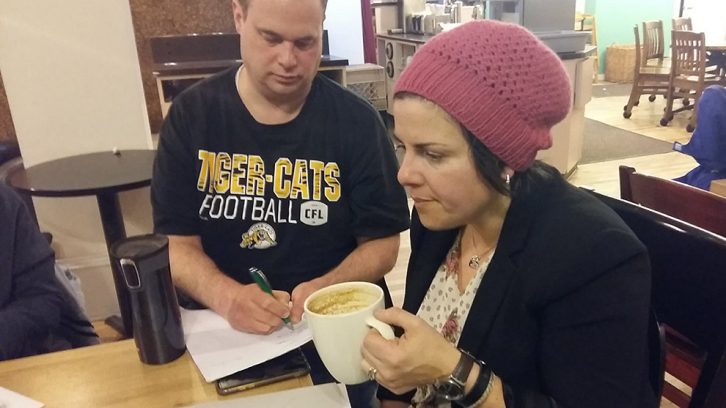Health
Concussion Cafe: brain injury survivors share their experiences
The meetings will take place in the Canada Games Centre the last Tuesday of every month

caption
Qendresa Sahiti, Kathleen Cairns and Alexis Leonard are planning the first Concussion Cafe
caption
Qendresa Sahiti, Kathleen Cairns and Alexis Leonard are planning the first Concussion Cafe.Qendresa Sahiti, Kathleen Cairns, and Alexis Leonard have all suffered from concussions at one point or another in their lives.
Now, they are involved in setting up the Concussion Cafe as a way to help others who are struggling with post-concussion syndrome.
“I kind of thought everybody needs to get together and start talking about where the good resources are, who can really help,” says Leonard.
The cafe expects to hold its first meeting on Feb. 27 at the Canada Games Centre. If all goes according to plan, there will be regular meetings the last Tuesday of every month. Sahiti, Cairns and Leonard will act as the cafe’s peer leaders.
Individually, the three of them reached out to the Brain Injury Association of Nova Scotia wanting to get involved and help others struggling with post-concussion syndrome. BIANS is a non-profit organization dedicated to providing resources for self-help to people suffering from brain injuries.
Leona Burkey, executive director for BIANS, decided to unite them and create a committee. That’s how the idea of a Concussion Cafe was born.
When dealing with their own injuries, they felt like they didn’t have access to proper resources or information.
“When I wasn’t getting better, I felt really lost,” says Leonard. “My doctor wasn’t any help. I just, I felt lost. And so my care was mostly self-directed and I kind of thought ‘How are people sharing information about where the good practitioners are?’”
In Leonard’s case, her concussion was caused by whiplash from an accident that happened two years ago when a car hit the bus she was on. She still suffers from concussion symptoms.
For Sahiti, it was three years ago, playing rugby. She recovered completely within a month. Cairns’ concussion was caused by a fall eight years ago and she, like Leonard, has lingering issues.
“I say I am good now; I am. But there are still some weird things I know I didn’t have before,” says Cairns.

caption
Leona Burkey, BIANS executive director, is helping the volunteers get ready for the first Concussion Cafe.Burkey says there’s a need for this type of group. According to BIANS, approximately 1.4 million Canadians live with some disability due to a brain injury — 170,000 each year.
“A lot of the requests we get from the community are for resources, information and support,” she says. “We see that those calls come in and we hear the stories and we hear the concerns.”
The cafe is meant for people to gather, talk about their personal experiences and share solutions and resources.
“It’s not a pity party,” Burkey adds.
Burkey says one of the needs most expressed by the community is a need for peer support. Survivors of mild brain injuries often feel like people “don’t get it.”
Sahiti, Cairns and Leonard view their roles as a way to share experiences and bring some positivity, validation and hope to others.
“We’ve all been through it, so we can all kind of relate in a way and have those conversations that you can’t necessarily have with your clinician. It’s a bit more comfortable. It’s a bit more familiar,” says Sahiti.
People who want to get involved with BIANS can fill out the volunteer application form available on their website.
